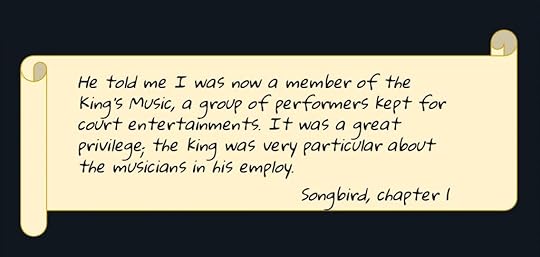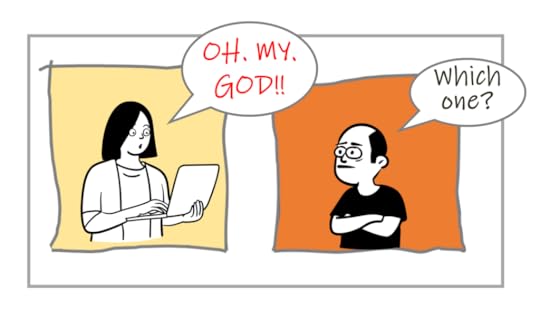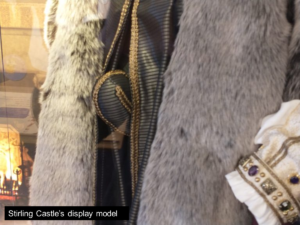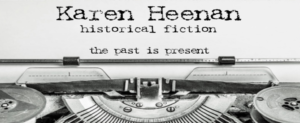Jonathan Posner's Blog, page 10
July 18, 2022
Feeling hot hot hot!

It has been a hot weekend here in Exeter, UK, and getting hotter today and tomorrow. Although not as sweltering as other parts of the UK, with temperatures expected to break the 40 degree barrier in some parts of the country, it’s still more than we’re used to.
I am fortunate that my flat stays cool in the heat, which is why I am taking the oppotrtunity to stay in for the next two days, and concentrate on my writing. I did get out yesterday to enjoy some live jazz on the Exeter Quay (see pic), but staying in today and tomorrow seems a sensible option!
First task is to finish up-loading my books to platforms that make them available to physical bookstores, so they can be ordered into any store on request. I’ll update when this is complete.
I am also planning out the next exciting Mary Fox adventure, after introducing her character in The Broken Sword. To be called The Tudor Prince, it will feature Mary being asked to impersonate a young prince, in return for an enticing sum of money.  That’s not why she takes on the challenge, of course; she’s much more motivated by the thought of adventure and danger! I’ll update on the progress of this book over the next few months. In the meantime, if you’ve not read The Broken Sword, click the pic to download, or read the opening chapter here.
That’s not why she takes on the challenge, of course; she’s much more motivated by the thought of adventure and danger! I’ll update on the progress of this book over the next few months. In the meantime, if you’ve not read The Broken Sword, click the pic to download, or read the opening chapter here.
AN UNHOLY F-BOMB
 AN UNHOLY F-BOMBOr how we learned to love the effing Word
AN UNHOLY F-BOMBOr how we learned to love the effing WordWARNING: This article makes very liberal use of the f-word. If you are someone that finds this offensive, I suggest you stop reading now. If, however, you are offended by any views of religion that contradict your own, then I invite you to read on, but at your own risk.
It seems to me that nothing better describes the move in modern free-thinking western societies from religion to secularism, than the substitution of the f-word for ‘god’ in the phrase ‘for god’s sake!’
Now I know what you’re thinking. “For fuck’s sake, Jonathan!” you say, “how can you build an argument for secularisation around one little phrase? There must be hundreds of other indicators, such as falling church attendance and fewer people claiming to have a religion or believe in god. Or even the marginalisation of the clergy in national debates. And yes, you are quite right, those indicators do suggest that religion is on the run in most, if not quite all, western societies (the ‘Land of the Free?’ Fuck, give me strength).
But hear me out on this. [more]
July 13, 2022
Future Classics

As a Tudor history buff, I do like to get out and experience the Tudor world. So I was pleased to be able to attend a very entertaining classical music concert a few weeks ago, featuring a counter-tenor singing 16th and 17th century songs in a Tudor-era priory. Then last week I had the opportunity to see a very talented international harpist playing music from the 16th through 19th centuries in beautiful old village church.
Both performers gave illuminating short talks between each piece, covering the historical background, a bit about the composers, and telling us how the songs came to be written. The counter-tenor introduced several of his songs by telling us that although these were the popular pieces of the day, the establishment of the time may have thought them a little risqué. He also pointed out that as we were in a 16th century hall (preserved in all its Tudor glory), there was every chance that the songs we were hearing could actually have been performed in this very place over 400 years ago. It sent a shiver down my spine to think that I was being treated to a very similar experience to the one our Tudor ancestors would have enjoyed – hearing the same music in pretty much the same environment. OK, maybe not my ancestors, as they would have been too busy ploughing fields in Poland at the time – but you get the point.
This then got me thinking. [More]
July 8, 2022
Are you worth your salt?
by
V E H Masters
In my saga The Seton Chronicles the family make their money through trade. I spent a fair amount of time trying to unpack just what Scotland would be trading across the North Sea (which was known as the German Ocean until just after WW1 ). In the 1500s hides, wool and fish were the main exports but increasingly salt became important too.
 National Library of Scotland – An illustration by William Brownrigg showing 18th Century salt making
National Library of Scotland – An illustration by William Brownrigg showing 18th Century salt makingThe production of one ton of salt required six tons of coal to keep the fire beneath the iron pans, which contained the sea water, burning over several days until the water evaporated. Several villages dotted around the Forth Estuary in the east of Scotland had the perfect combination of sea and coal seams needed.
 Culross Palace home of Sir George Bruce, a salt entrepreneur of the 1500s
Culross Palace home of Sir George Bruce, a salt entrepreneur of the 1500sIn Culross, the coal was mined from beneath the sea, always a dangerous process but even more so in the 16th century. The owner of both mine and salt pans, Sir George Bruce, invented a horse drawn bucket and chain system that continually drained the seawater from his underground mine allowing the coal to be extracted. It was such a curiosity that visitors, including King James VI, came to Culross especially to see it.
 Sir George Bruce of Carnock
Sir George Bruce of CarnockCulross has become part of the Outlander tour circuit since scenes from the series were filmed there, so welcomes quite different visitors from the time of Sir George’s invention. Although the geographical information being given to Outlander tour groups seems a little hazy; visiting Culross the other day I came across a lovely American who was under the impression that she was in the Highlands.
Inevitably the salter serfs, who worked the salt pans had a hard life. The 1606 Act placed both salters and colliers in permanent bondage to their employers and anyone who absconded was to be punished as a thief – which could mean anything from having their ears chopped off to a hanging. Not only were they bound to their place of work for life, but any children they had were too. They were paid in salt and if you visit Culross palace you will see the small window they reached their cupped hands through to receive their ‘handful of salt’.

However to be worth your salt is an expression that pre-dates the poor salter serfs of Culross. It goes back to Roman times when their soldiers were paid in salt, and buying salt was seen as a shrewd investment. The origin of the word salary harks back to then. Sal was the Latin for salt, the soldiers month payment was called a salarium, which in French became salaire and then in English, salary.
 Ornate Salt Cellar 1660
Ornate Salt Cellar 1660To sit below the salt refers to your lowly status. As a valuable commodity, the salt cellar was placed on the high table of the Lord of the Manor and was readily available to him and his high ranking guests. And salt cellars were often very ornate underpinning the value of the commodity and the status of its owner.
The first mention of status defined by the salt cellar is credited to Bishop Joseph Hall, in verses he penned in 1597 …
A gentle Squire would gladly entertaine
Into his House some trencher-chapelaine,
Some willing man that might instruct his Sons,
And that could stand to good Conditions:
First that He lie vpon the Truckle-bed,
Whiles his yong maister lieth ore his hed;
Second that he do, on no default,
Euer presume to sit aboue the salt.
But writing satire was a risky business as the good bishop discovered when, in 1641, his levity led to a charge of high treason and he was imprisoned in the Tower of London.
References:
The Scottish People 1490-1625 by Maureen M Meikle
The Salt Industry and its Trade in Fife and Tayside c1570 to 1850 by C A Whatley
For more on Vicki Masters and her books, click the image below to see her website
July 1, 2022
Music at Henry VIII’s Court
Guest Post
by
Karen Heenan
 While minstrels were considered royal servants, they were a cut above those whose jobs were to make life comfortable for the inhabitants of the court. A minstrel provided both comfort and beauty, and in Henry’s court, it was debatable which of these was more important.
While minstrels were considered royal servants, they were a cut above those whose jobs were to make life comfortable for the inhabitants of the court. A minstrel provided both comfort and beauty, and in Henry’s court, it was debatable which of these was more important.
Minstrels were provided with food, lodging, and clothing or livery, as were all court servants, but because they were also frequently in the royal presence, their attire was of better quality, and they were often costumed to take part in masques, or evening entertainments for the court. They were also given gifts of money by their patrons, and many a minstrel left the court with a significant nest egg.
 Henry loved music, and before his brother’s death, he had been permitted only two minstrels. When he became Prince of Wales, and then king, he acquired musicians at a speed which would put jokes about his later wife-gathering to shame. The number of musicians in the royal household was generally sixty, but he was always willing to add more.
Henry loved music, and before his brother’s death, he had been permitted only two minstrels. When he became Prince of Wales, and then king, he acquired musicians at a speed which would put jokes about his later wife-gathering to shame. The number of musicians in the royal household was generally sixty, but he was always willing to add more.
Some musicians were specialized—playing the lute, harp, or virginals—but there were also general purpose entertainers, acquired each year at the Lenten schools of minstrelsy, who were also acrobats, storytellers, or worked with animals. Court entertainments came in many forms.
England at this point was still strongly Catholic, and in addition to secular musicians, there were also the choristers of the Chapel Royal—men and boys, generally a dozen of each—who sang mass several times each day. There was another, smaller choir, which traveled with the king. There was the Music (the general minstrels) and special musicians, imported—or occasionally lured away—from other countries and courts.
 A core group of musicians traveled with the king. They went on progress with him while in England, and, in 1520, when the king and most of his courtiers journeyed to France for the Field of Cloth of Gold, it would have been unspeakable to leave them home. Henry took every weapon in his arsenal to impress the French, and he would have considered the quality of his musicians to be a significant weapon.
A core group of musicians traveled with the king. They went on progress with him while in England, and, in 1520, when the king and most of his courtiers journeyed to France for the Field of Cloth of Gold, it would have been unspeakable to leave them home. Henry took every weapon in his arsenal to impress the French, and he would have considered the quality of his musicians to be a significant weapon.
He also took the Chapel Royal choir. For a final mass before departing for England, they dud musical gymnastics with the French choir—the English choir singing with the French organist, and vice-versa, in one of those “it sounded like a good idea at the time” performances that no doubt had everyone involved muttering under their breath.
Henry Tudor has come down through history as a petulant tyrant, changing wives, ministers, and religions to suit his fancy, but one fancy that never changed over his years on the throne was his love of music.
Illustration references
#1 Henry VIII, Hans Holbein – Pixabay
#2 The Concert / Wikimedia
For nmore information about Karen and her Tudor books Songbird, A Wider World and Lady, In Waiting – click the pic below.
June 29, 2022
OH MY GOD!

Those of you who were regular Friends watchers from 1994 to 2004 – and the repeats ever since – will know how Janice (Maggie Wheeler) makes the iconic exclamation ‘OH – MY – GOD!’ in her trademark squeaky voice. And she’s not the only one; I am sure most people say the same thing many times in the course of their daily lives. It, and the abbreviation ‘OMG!’, seem to be acceptable responses to any situation, from the mildly interesting to the slightly surprising, and all the way up to the truly unexpected.
But those of you who read this blog on a regular basis will know that I like to understand the meaning behind such expressions and ‘unpack’ them (OMG! I so hate that expression). It seems to me that the question here is this – when you say ‘Oh my god!’ which particular god are you appealing to? In the context of the question, which god is yours?
It could be any one of the three or four thousand gods that human societies have worshipped, ever since man first stepped out of his cave and knelt down before the sun to pray it would come back again the next day. Is it Yahweh, Jesus, Allah or Vishnu perhaps? Or maybe it’s Zeus, Odin, Apollo or Thor? Then again, it could be Isis, Horus, Anubis or Osiris. Or it could even be a personal god; one that you have in your head that no-one else knows about. While I am not going to pry into which god you are claiming to own, it would be interesting to know which it is.
That’s because different gods might be expected to react to your invocation in different ways. Say you see a social post from a friend, showing how they are relaxing on a sunny beach, while you are shivering into your anorak on your rainy commute. ‘OH – MY – GOD!’ you exclaim as you stare at the pictures of them relaxing on a beach lounger, holding up their daquiri like a prize trophy and grinning like a Cheshire cat. If Jesus is your particular god, he might be expected to observe that envy is not a good look on you, then add something about the meek inheriting the earth, before then taking no further action (which seems to be his way). But if say, Thor is your go-to god, he might be more inclined to offer a thunderbolt delivery service, and take the friend out with a quick blast of lightning, which would emerge inexplicably from the cloudless sky over Tenerife. You get the point – different gods work in different ways (all of them mysterious).
Then again, what if you say ‘OMG!’, but don’t happen to believe in any god at all? Are you being disingenuous by appealing to ‘your’ god when you don’t actually have one? Or is it that the expression has lost all meaning in this modern age, where so much of the western world is becoming secular? Do committed atheists also throw ‘OMGs’ around with wild abandon, not stopping to ‘unpack’ the expression (there it goes again)? I have certainly seen several high-profile atheists on YouTube using ‘my god’ in the course of conversations, so I tend to think it has become almost meaningless.
And what of the future? What if we fast-forward to a time when the current crop of gods have become historical curiosities, like the Roman, Greek, Norse and Egyptian ones are now? When people refer to gods such as Jesus with the same detached amusement that we currently reserve for Zeus and Apollo? Will there be new gods by then? Will the people of say, the 23rd or 24th century (or whatever they call their centuries by then), be still saying OMG! but be referring to deities we have yet to encounter? (Unless perhaps it’s the one you have in your head who has somehow escaped).
Or maybe the increasing secularisation of western culture will ultimately lead to the end of religion altogether, when the supernatural framework that so many people use to make sense of their world is replaced by one of rational scientific enquiry. Then I feel we can reasonably expect the expression to disappear as well. Of course, it may be replaced by something a little more reasoned – just as language generally changes with new developments in society. What might our distant and more sensible descendants say? Maybe the expression will have evolved – and the equivalent of the Janice character will be leaning forward on the café sofa and squeaking something like ‘Oh My Beautiful Natural World!’
I do accept a phrase such as this lacks the immediacy and punchiness of ‘Oh my god!’, but at least it has the advantage of being based on reality rather than illusion.
June 28, 2022
Why did men wear codpieces?
by
Vicki Masters

I went to see the rock group Jethro Tull perform on several occasions when I was a lot younger. The front man, Ian Anderson, would stand on one leg playing the flute, which was fairly impressive, but what really drew the eye was the glittering codpiece he wore while doing so.
The next time I encountered a codpiece was many years later amongst the dressing up clothes at Stirling Castle. This was on a whole different level to Anderson’s which seemed remarkably discrete by comparison. Indeed, to my 21st century eyes, it was so immodestly large and protruding I was embarrassed to be caught staring at it, and moved swiftly on.

When I came to write my first novel I debated whether my characters should don them or not and wondered if they were indeed commonly worn by the men of Scotland in 1546. I decided to delve, metaphorically, into the codpiece further.
Cod, in this instance, has nothing to do with fish but was the slang for scrotum. Codpieces began as something quite practical to fill the space between tunic and hose and preserve men’s modesty. But as the fashion in doublets became shorter, greater covering was required and the codpiece became a fashion statement of itself, and a sign of virility in the early 1500s.

Often they were decorated with tassels, bows or jewels. Some were large enough to store coins, a handkerchief or even a handy snack. The increased padding provided protection from swords, lances and other implements of war. Here’s King Henry VIII’s armour, with protective appendage.

But the era of the cod piece was also the period when the pox was rife throughout Europe. Treating syphilis involved a range of herbs, sticky unguents and decoctions. Containing it all within a large codpiece helped protect clothing from stains, as well as keeping the poultice in place.
By late 16th century the cod piece had had its day and was replaced by the well padded stomach, known as a peascod belly; the codpiece beneath gradually shrinking in size.

As for why Ian Anderson sported one I suspect it was a piece of flamboyant fun that fitted with the overall romance of the clothes of the 1970s. And his was modest by comparison with the ‘packages’ some other rock stars were creating.
For more on Vicki Masters and her books, click the image below to see her website
References:
Grace Vicary, Visual Art as Social Data: The Renaissance Codpiece
https://www.cam.ac.uk/research/features/what-goes-up-must-come-down-a-brief-history-of-the-codpiece
June 22, 2022
Help!

I want to set you a challenge.
It’s fairly trivial – nothing world-changing here. I just want to see if this is an actual thing, or if it’s just me. And I am perfectly prepared to accept it is just me, or even that it is purely coincidental. Go with me on this.
The thing I want to test is: how come, pretty much every time I channel-surf the commercial TV channels, I seem to land not the programme, but on the ads?
Picture the scene. I’ve switched on the TV, and say I have come in on BBC1. So far, so good. But say there’s something showing on the Beeb that I am not interested in, like EastEnders or football. So I will idly flick over to BBC2…
Gardening.
So on to ITV. It’s on the ads.
How about Channel 4? Also on the ads.
Or maybe Channel 5? Ads again.
And so on. You get the idea.
And it always seems to be that I land at the beginning of a very long ad break – so long in fact, that I have completely forgotten which programme I was expecting to see (although please see my previous article on my poor short-term memory).
When I first became sensitised to this phenomenon, I was merely amused in a wry sort of way. But over time I am beginning to wonder if it really is a thing. A statistical anomaly. An obsession, even…
Or am I overthinking this? (don’t answer…). Is it just because I am truly sensitised to it? That when I land on the ads, it reinforces my perception that they follow me around the channels, like some malevolent little personal rain cloud? Which means that when I actually do land on a programme, it doesn’t support my hypothesis, so it doesn’t register? Or maybe it’s like Schrodinger’s Cat – just before I arrive, the commercial channel is happily showing their programme, but the millisecond I switch onto it, the ads come on?
Or then again, perhaps it is something to do with statistics – that a certain percentage of hourly airtime is ads, so my probability of switching over at ad-time is statistically high enough to ensure it happens very often? And there’s another possibility – to do with the timing of my channel-surfing. Maybe when I swap channels after a programme is finished, I am increasing my odds of hitting the ads? That’s because all the commercial channels are also between programmes.
Not that I have anything against ads, mind you. I had a long and worthwhile career in marketing before establishing myself as a full-time publisher and author, and was involved in the creation of a fair few ads myself. It’s just that I want to watch the programme, not be enticed for the umpteenth time to book a family holiday (I’m single), or try a breathable memory foam mattress topper for 60 days, whether or not it has a full money-back guarantee. Incidentally, if you ever watch Wheeler Dealers – my Saturday morning guilty pleasure – you’ll know that a mattress topper ad can somehow be spun out for the full duration of a break, which is a very long time indeed. And while I am on the subject, there’s a woman who does the all-too frequent ads for a prize draw to win a £million house, who has the most condescending and annoying voice I have ever, ever heard. I am sure she’s a lovely person and all that, but her voice sets my teeth on edge. Sorry, but there it is.
So here’s my challenge. See if you also seem to hit the ads more often than you would statistically expect, when you surf onto a commercial TV channel. Don’t keep a score, or jot it down in a notebook or anything like that, which, let’s face it, would be a bit weird. No, just build an impression of whether or not the sod’s law of ad breaks applies to you as much as I think it does to me. See how often you say, ‘Oh no, not the ads again…’ before pressing the ‘channel up’ button and moving from, say, a ‘cinema verité’ ad for home intruder alarms, to perhaps a ‘slice of life’ one for a bank.
And if it does now become a ‘thing’ for you, that takes you beyond ‘wry amusement’ into the realm of ‘this is an obsession’, then I am truly, truly sorry. Maybe it will all seem better after a good night’s sleep.
In which case, how about trying a new mattress topper?
Looking for feedback – or not?

As a service provider I am always looking for feedback, so I would be very grateful if you would fill in my short questionnaire. Your answers will be treated in the strictest confidence, and used only to improve the service. It should take no more than an hour to complete, and will involve me asking a wide range of seemingly irrelevant questions, giving information that I may, or may not, decide to use in future marketing.
I will ensure there are several mandated fields that must be completed before you can move on, and these will be hidden below a ‘next page’ button, so you don’t know why the screen won’t progress. Instead you’ll get a large red passive-aggressive warning message informing you that you have missed a field, requiring you to find it, then complete it, before moving on.
The questions themselves will be mainly about elements of my service that are so esoteric and nuanced that you will genuinely have no chance of remembering if or how they actually happened, let alone forming a valid opinion on them. Where you do have opinions, the questions will be phrased in such a way that your only answer options are totally inappropriate to express them. But not to worry! I will also include a free-text box so you can write in your comments, although I will either restrict it to 200 characters (including spaces) so you run out before you can make your point, or I’ll allow the character count to be so large (two or three thousand), that your few sentences seem woefully inadequate.
Once you have answered all the questions, the system will inexplicably require you to set up an account. It will ask you to think of a user name, which can’t be your email address, as that would be too easy. Then it will ask you to create a password, which may or may not require a minimum number of capital and lower case letters, numbers and punctuation symbols, but naturally it won’t tell you what the requirements are until you have thought of a password for over ten minutes and typed it in. Then it will pop up with another red message informing you that this is contrary to its rules, and you need to try again. After that it will ask you to think of three answers to inane questions, such as your first pet or your place of birth, but you’ll need to remember exactly how you typed each one (capital letters / spaces, etc) or it won’t recognise your answers in future.
Naturally I will make sure that if you get anything wrong and try to go back, the system will wipe the information you have previously given, requiring you to start again. Ideally you’ll need to complete the same information at least four times before you can move on.
Finally, it will ask you to prove you are human either by ticking a box marked ‘I am not a robot’ – i.e. one that a robot couldn’t somehow be set up to tick – or by spotting pictures with American traffic lights on a grid…
OK, as I am sure you have realised, the above is my somewhat cynical attempt to highlight the absurdities of web-based questionnaires and forms. But behind this is also the specific point I wanted to make – which is that commercial organisations asking for feedback is a pointless exercise. Why? Because whether the service is good, bad or average, such a questionnaire is a singularly inappropriate way of feeding back.
Firstly, if you’re paying for a service, it is only reasonable to expect it to be delivered at a level in keeping with the price paid and promise offered. Receiving service at this level is simply the organisation doing what it promised – so why the need to feed back?
Secondly, if the service falls woefully short, a standard form is unlikely to have the necessary detail, and probably won’t even be channelled to the executive in charge of that part of the service. Instead, one should send a specific letter or email of complaint to the relevant person or department.
And finally, if the service is exceptional, that is most likely down to a single individual or team. In which case the better way to feed back is to let them know, genuinely and in person, at the time of delivery (and their superiors as soon as possible as well). Again, a standard-form questionnaire simply won’t cut it.
So I have a simple philosophy – which is to ignore all requests for feedback by commercial organisations, especially where the only feedback I can realistically give is ‘you did near-enough what you promised.’ Such requests are intrusive, inane and patronising, and rightfully go straight in the bin.
You’ll note I have stressed throughout this article that feedback to commercial organisations is a waste of both my time and theirs. Feedback for creative works is a whole different ball-game. Rather than providing a paid-for service, a creative is offering something which may or may not resonate with the audience, and which may or may not have artistic merit. In which case, therefore, feedback in the form of a critique is very valuable indeed, as it helps the creator understand the value of their work and ways to develop their art. Which is why I will always leave feedback on a book if I can, and try to be constructive in my critique.
And as an author myself, I can tell you how valuable feedback on my novels can be, and how much it is welcomed, good or bad.
Thank you for reading to the end of this article. Now please click here for the terms and conditions, which is eighteen pages of obscure legal jargon in very small text, and click ‘agree’ to show you have read, understood and are OK to be legally bound by them. Forever.
God save the Queen
[image error]
Now the dust has settled on the celebrations of the Queen’s remarkable achievement in reaching 70 years on the throne, perhaps we can reflect on the words of the National Anthem which we heard played and sung so joyfully at the concert and other events over the weekend?
God save our gracious Queen!
Long live our noble Queen!
God save the Queen!
Send her victorious,
Happy and glorious,
Long to reign over us,
God save the Queen.
Have you ever considered what the words say, let alone what they mean? Have you wondered for example, what it is we are exhorting God to ’save’ the Queen from? Or whether we should continue to ask that she should be ‘long-lived?’
If so, perhaps a perfectly valid response from God might be that as the lady in question has reached the impressive age of 96, which part of ’saving’ her and giving her a long life, do we think he has missed? Surely, he might argue, he can put a big tick in the ‘saving’ box, and we should perhaps now be moving on and asking him for something else in regard to this exceptional person?
Of course, all this is academic, if you take the more theological view that what we’re actually doing is asking God to be a Christian ‘saviour’; in other words, to ‘save’ the Queen in the same way that Jesus was supposed to be sent to save all of us – from ‘original sin’. This was the sin derived from the actions of Adam, Eve and the Serpent, involving a certain apple in the Garden of Eden, as told in the book of Genesis. Unless you are a committed creationist and believe that the earth is only 6,000 years old, it was created in six days and that snakes can talk – in which case you are probably part of a very small minority in Britain today – this is hardly a valid request.
Either way, by asking God to save Her Majesty from death, or from ‘original sin’, I think this makes the National Anthem into a form of prayer. Great Britain is now a diverse and multicultural society, and although 54.7% of the 2011 census respondents described themselves as Christian, 35.3% described themselves as having no religion.* And I suspect that these figures will have shifted significantly further away from Christianity when the 2021 census figures are released later this year.
I would therefore argue that this makes the words of the anthem – which date back to 1745 – singularly inappropriate to modern Britain. Surely we should have a National Anthem that better reflects our society and beliefs today? I suggest when the sadly inevitable does happen and we have to bid a fond and heartfelt farewell to Her Majesty, that the new King Charles should use his influence to start a national debate on our anthem.
Should it have any exhortation to God at all? I accept that Charles will be head of the established church, but surely it is inappropriate for the song we sing at national events to be so deeply based on a religion that fewer and fewer of us subscribe to, or even believe in? Another anomaly is that the National Anthem is British, while there is no equivalent anthem (to the best of my knowledge) for the English. The Welsh have Hen Wlad Fy Nhadau and the Scots have Flower of Scotland – yet as part of the United Kingdom, both also have God Save the Queen. This leads to the interesting spectacle that when either of these teams play England at an international rugby match they each sing their own anthem, while the English team sings one that applies equally to both sides.
So let’s have a national debate on the National Anthem – not now, as I say, but once God has stopped saving Queen Elizabeth – and find something more appropriate to modern Britain, and maybe also a different one for modern England. Naturally, I would rather this is later than sooner, not least because it would be great for God to save our current sovereign for as long as possible, but also because she has revealed herself to be a fine comedy actress. No matter how old she is, it was clear on Saturday night that she has impeccable timing, and can deliver a comedy punchline with the best of them. I would love to think she could regale us with lots more skits in years to come.
More tea with Paddington Bear, anyone?
References
*https://www.ons.gov.uk/aboutus/transp...






